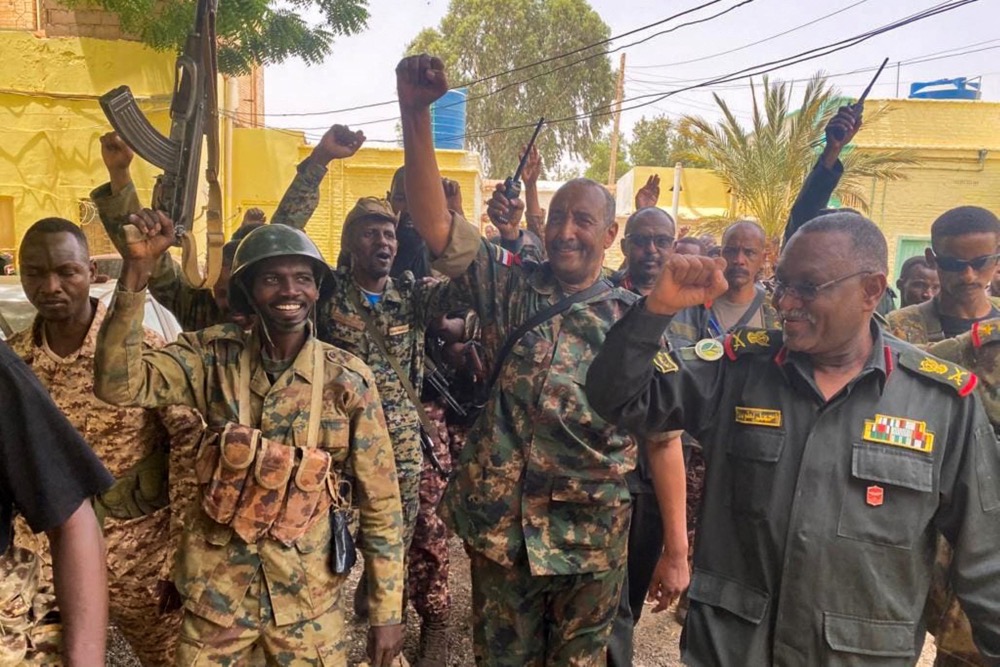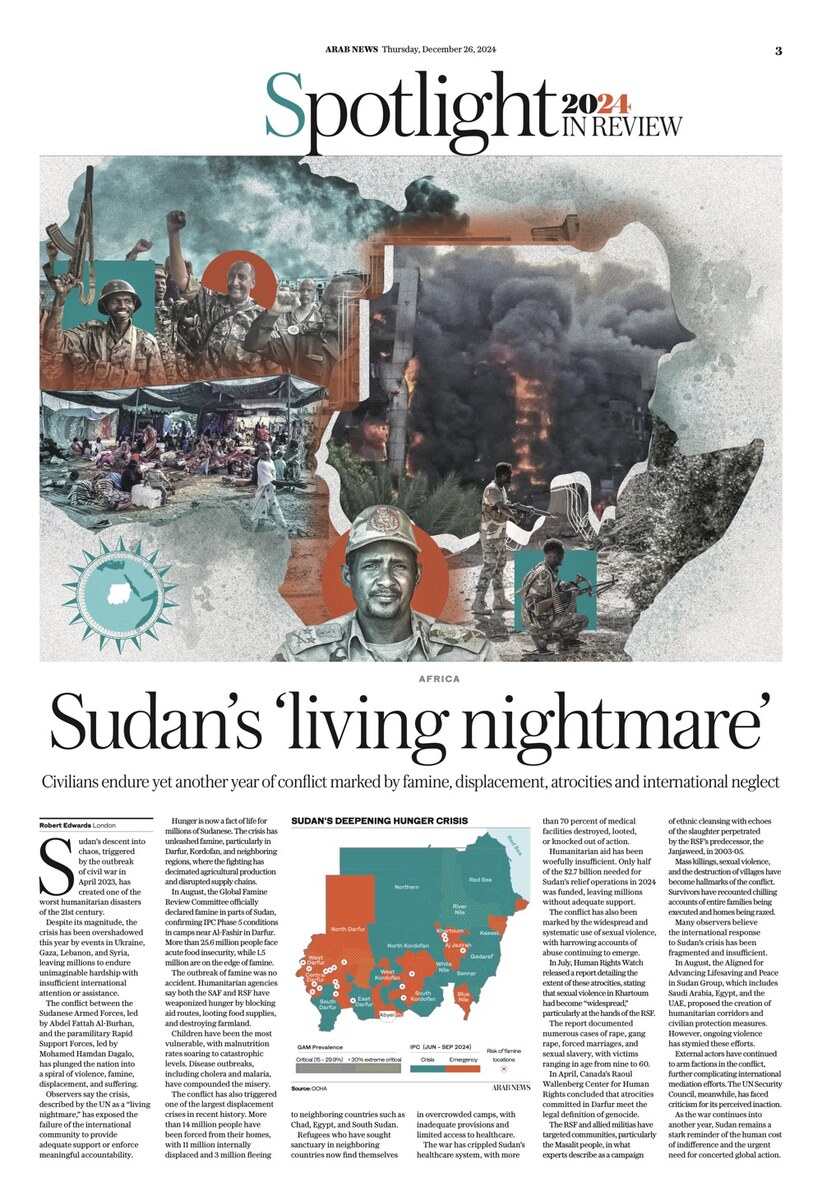Gaza Strip: The Hamas-run health ministry said Thursday more than 30,000 Palestinians have been killed in Gaza since the war between the militant group and Israel began nearly five months ago.
While mediators say a truce deal between Israel and Hamas could be just days away, aid agencies have sounded the alarm of a looming famine in Gaza’s north.
Children have died “due to malnutrition, dehydration and widespread famine” at Gaza City’s Al-Shifa hospital, said the health ministry, whose spokesman Ashraf Al-Qudra has called for “immediate action” from international organizations to prevent more of these deaths.
Citing the deteriorating conditions in Gaza, USAID head Samantha Power said Israel needed to open more crossings so that “vitally needed humanitarian assistance can be dramatically surged.”
“This is a matter of life and death,” Power said in a video posted on social media platform X.
The latest overall toll for Palestinians killed in the war came after at least 79 people died overnight across the war-torn Gaza Strip, the health ministry said Thursday.
Mediators from Egypt, Qatar and the United States have been seeking a six-week pause in the war sparked by Hamas’s October 7 attack on Israel, which in response vowed to eliminate the Palestinian Islamist group that rules in Gaza.
Negotiators are hoping a truce can begin by the start of Ramadan, the holy Muslim month that kicks off March 10 or 11, depending on the lunar calendar.
The proposals reportedly include the release of some Israeli hostages held in Gaza in exchange for several hundred Palestinian detainees held by Israel.
Short of the complete withdrawal Hamas has called for, a source from the group said the deal might see Israeli forces leave “cities and populated areas,” allowing the return of some displaced Palestinians and humanitarian relief.
US President Joe Biden is “pushing all of us to try to get this agreement over the finish line,” said his secretary of state, Antony Blinken.
The crucial southern Gaza city of Rafah is the main entry point for aid crossing the border from neighboring Egypt.
But the World Food Programme said no humanitarian group had been able to deliver aid to the north for more than a month, accusing Israel of blocking access.
Neighbouring Jordan has coordinated efforts to air-drop supplies over southern Gaza.
“If nothing changes, a famine is imminent in northern Gaza,” the World Food Programme’s deputy executive director Carl Skau said.
Israeli officials have denied blocking supplies, and the army on Wednesday said “50 trucks carrying humanitarian aid” had made it to northern Gaza in recent days.
The war was triggered by an unprecedented Hamas attack on southern Israel that resulted in the deaths of around 1,160 people, mostly civilians, according to an AFP tally of official Israeli figures.
Militants also took about 250 hostages, 130 of whom remain in Gaza, including 31 presumed dead, according to Israel.
Israel’s retaliatory military campaign in Gaza has left hundreds of thousands displaced, with nearly 1.5 million people now packed in Rafah.
In a sign of growing desperation among Gazans over living conditions, a rare protest was held Wednesday by residents over the soaring prices of commodities.
“Everyone is suffering inside these tents,” said Amal Zaghbar, who was displaced and sheltering in a makeshift camp.
“We’re dying slowly.”
Israel has repeatedly threatened a ground offensive on Rafah, with Prime Minister Benjamin Netanyahu saying a truce would only delay it, as such an operation was needed for “total victory” over Hamas.
Egypt — which borders Rafah — says an assault on the overcrowded city would have “catastrophic repercussions.”
While Israel’s plans for post-war Gaza exclude any mention of the Palestinian Authority, its top ally the United States and other powers have called for a revitalized PA, which governs the occupied West Bank, to take charge of the territory.
Palestinian foreign minister Riyad Al-Maliki said a “technocratic” government without Gaza’s rulers Hamas was needed to “stop this insane war” and facilitate relief operations and reconstruction.
His government, based in the West Bank, resigned this week, with prime minister Mohammad Shtayyeh citing the need for change after the war ends.
A government that includes Hamas — longtime rivals of president Mahmud Abbas’s Fatah party, which controls the PA — would “be boycotted by a number of countries,” Al-Maliki told a news conference in Geneva.
On Thursday, Palestinian factions — including Hamas and Fatah — were expected to arrive in Moscow for a meeting at Russia’s invitation.
“The central goal is how to unite the Palestinian ranks,” Mustafa Barghouti of the Palestinian National Initiative — a civilian political party — told Qatar state TV from Moscow.
In Israel, Netanyahu has come under increasing pressure to bring the hostages home.
Israeli Defense Minister Yoav Gallant insisted the government was “making every effort.”
A group of 150 Israelis started a four-day march from Reim, near the Gaza border, to Jerusalem, calling for the government to reach a deal.
“No one should be left behind,” said Ronen Neutra, father of captive Omer Neutra, an Israeli soldier who is also a US citizen.
Gaza health ministry says war deaths exceed 30,000 as famine looms
https://arab.news/nh4ej
Gaza health ministry says war deaths exceed 30,000 as famine looms

- Mediators say a truce deal between Israel and Hamas could be just days away
- Children died “due to malnutrition, dehydration and widespread famine” at Gaza City’s Al-Shifa hospital
































